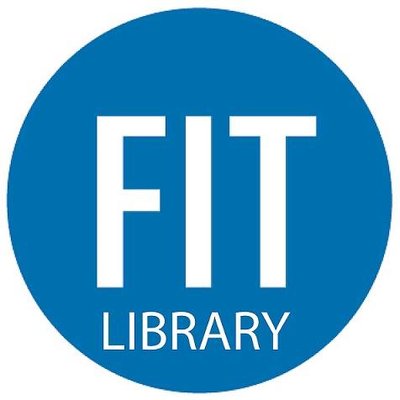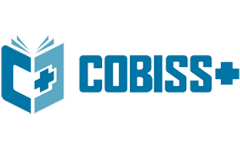OPTIMISM IN PATIENTS SURVIVOR CANCER
DOI:
https://doi.org/10.61841/eba6z068Keywords:
Optimism, Survivor cancerAbstract
In the current millennial era, the pattern of human life is not like the time before the millennial era. The environment is full of pollution, fast food, unhealthy lifestyles, the number of hours of sleep that is not fair and the demands of work do humans prioritize the results obtained rather than the process to get it. One impact was seen by health problems, namely cancer. Cancer is a deadly stigma when someone listens to it. But some people can see cancer as part of the life process that must be passed. This understanding can be explained in the concept of optimism so that researchers are interested in seeing the phenomenon of the concept of optimism in cancer patients. This research uses a qualitative method with a phenomenological design and data collection is carried out intensively, deeply, and comprehensively. Data collection is done by interview, observation, and official documents. With this specific research, it can only be experienced by the subject under study and does not apply to other subjects. Two people who became the subject were visited by researchers when the subject was running therapy at one of the therapy sites in Bandung. The instrument used for data collection is humans, the researchers themselves. Data analysis activity begins with data collection, personalization, and creating units of meaning to get a textural description. The results showed that the two subjects displayed different optimisms. The behavior displayed by the NR subject showed pessimism in dealing with health after cancer diagnosis and treatment. While LL subjects showed themselves optimistic in facing health after cancer diagnosis and treatment.
Downloads
References
[1] Agustian, H. (2006). Psikologi Perkembangan. Bandung: PT. Refika Aditama.
[2] Applebaum, A. J., Stein, E. M., Lord-Bessen, J., Pessin, H., Rosenfeld, B., & Breitbart, W. (2014). Optimism, Social Support, and Mental Health Outcomes in Patient with Advanced Cancer. Psychooncology, 23.
[3] Arif, I. S. (2016). Psikologi Positif Pendekatan Saintifik Menuju Kebahagiaan. Jakarta: PT Gramedia.
[4] Creswell, J. W. (2010). Research Design: pendekatan kualitatif, kuantitatif, dan Mixed. Yogyakarta: PT. Pustaka Pelajar.
[5] Daraei, M., & Ghaderi, A. R. (2012). Impact of education on optimism/pessimism. Journal of the Indian
Academy of Applied Psychology, 339-343.
[6] Fitria, R. (2017). Berdamai Dengan Kanker. Jakarta: PT Gramedia.
[7] Ghufron, M. N., & S, R. R. (2014). Teori-teori Psikologi. Yogyakarta: Ar Ruzz Media.
[8] Gotay, C. C. (1998). Quality of Life in Long-term Survivors of Adult-Onset Cancers. Journal of the National Cancer Intitute, 656-667.
[9] Hasnain, N., Wazid, S., & Hasan, Z. (2014). Optimism, Hope, and Happiness as Correlates of Psychological Well-Being among Young Adult Assamese Males and Females. IOSR Journal of Humanities And Social Science, 44-51.
[10] Kiple, K. F. (2003). The Cambridge Dictionary of Disease. New York: Cambridge University Press.
[11] Moleong, L. J. (2017). Metodologi Penelitian Kualitatif Edisi Revisi. Bandung: PT. Remaja Rosdakarya.
[12] Myers, D. G. (2012). Psikologi Sosial. Jakarta: PT Salemba Humanika.
[13] Seligman, M. E. (2011). Learned Optimism : How to Change Your Mind and Your Life. New York: Vintage.
[14] Seo, K. S., & Choi, H. C. (2016). Sembuh dari Kanker dengan Berolahraga Panduan Hidup Berkualitas Bagi Penyintas. Bandung: Qanita PT Mizan Pustaka.
[15] Wardiyah, A. (2014). Faktor yang mempengaruhi Optimisme kesembuhan pada pasien kanker payudara. Jurnal Keperawatan, 121-127.
Downloads
Published
Issue
Section
License
Copyright (c) 2020 AUTHOR

This work is licensed under a Creative Commons Attribution 4.0 International License.
You are free to:
- Share — copy and redistribute the material in any medium or format for any purpose, even commercially.
- Adapt — remix, transform, and build upon the material for any purpose, even commercially.
- The licensor cannot revoke these freedoms as long as you follow the license terms.
Under the following terms:
- Attribution — You must give appropriate credit , provide a link to the license, and indicate if changes were made . You may do so in any reasonable manner, but not in any way that suggests the licensor endorses you or your use.
- No additional restrictions — You may not apply legal terms or technological measures that legally restrict others from doing anything the license permits.
Notices:
You do not have to comply with the license for elements of the material in the public domain or where your use is permitted by an applicable exception or limitation .
No warranties are given. The license may not give you all of the permissions necessary for your intended use. For example, other rights such as publicity, privacy, or moral rights may limit how you use the material.
















